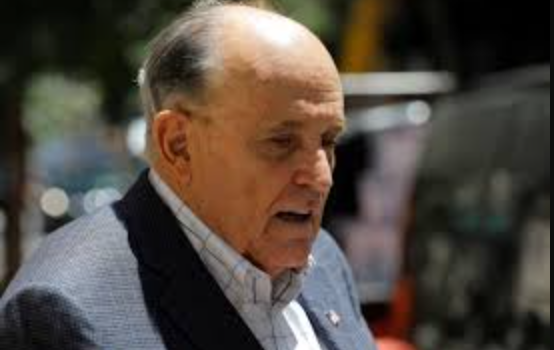
Law License at Stake Amid Allegations of Misconduct Following 2020 Election
Former New York City Mayor Rudy Giuliani spent 11 hours testifying in an ethics investigation concerning his involvement in efforts to contest the 2020 presidential election results, as the Washington DC Bar has moved to revoke his law license.
Giuliani appeared before the DC Board on Professional Responsibility, where he sought to downplay his involvement in a lawsuit alleging widespread voter fraud in Pennsylvania, which was initiated after President Joe Biden won the state. According to The Washington Post, Giuliani attempted to minimise his role in the legal challenge.
Hamilton “Phil” Fox III, the lead prosecutor for the bar’s Office of Disciplinary Counsel, described Giuliani’s assertions as “unfounded,” arguing that he misrepresented the circumstances surrounding Pennsylvania’s use of mail-in ballots and the impact of the COVID-19 pandemic on the election process. Fox stated that Giuliani “weaponised his law license by filing a frivolous lawsuit” and called for the revocation of his license, asserting, “There was no case in law nor fact for which Mr. Giuliani set forth on grounds of fraud.”
In his defence, Giuliani and his attorney, John Leventhal, claimed that he was brought into the legal battle at the request of Donald Trump the day after the election, tasked with quickly understanding the situation in Pennsylvania and other states, including Michigan, Arizona, and Georgia. Leventhal argued that since Trump’s legal challenge did not progress, the DC Bar had no grounds to revoke Giuliani’s law license. “The complaint was not accepted. This was never accepted by the court,” he stated.
Giuliani further attempted to minimise his involvement, indicating that another lawyer had prepared the initial fraud complaint while he contributed “a few paragraphs.” He expressed indignation over the proceedings, claiming he was being unfairly targeted. “I am shocked and offended this is happening to me,” he remarked, highlighting concerns that observers were restricted from adequately monitoring the counting of mail-in ballots.
He contended that the only evidence he had at that stage of litigation was that ballots in Pittsburgh and Philadelphia were being counted without independent oversight, emphasising the need to plead fraud with specific details. “This was specific enough for this stage of the pleading. That’s why it’s evidence, and not a conclusion,” he asserted.
The hearing committee will review evidence next week and will recommend whether Giuliani should face penalties for his actions.









